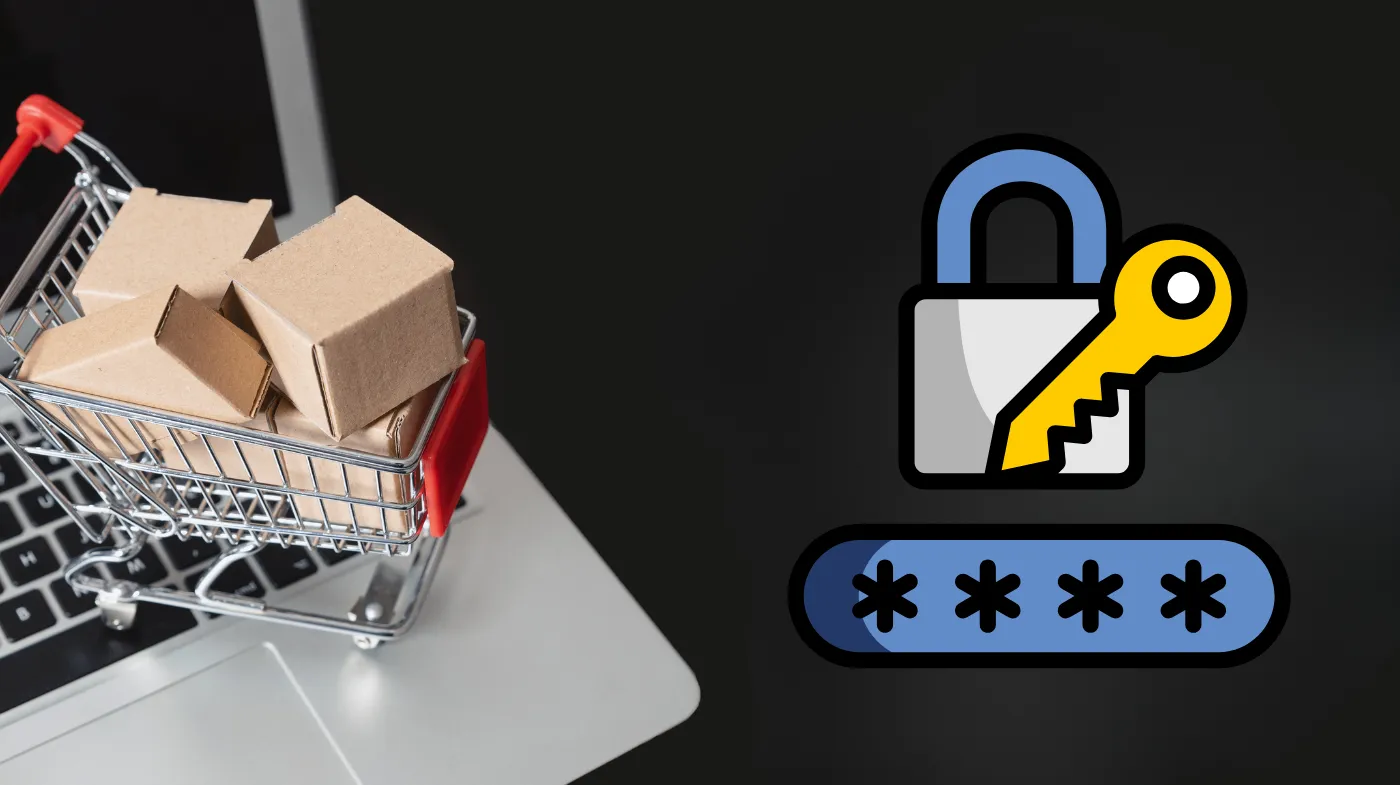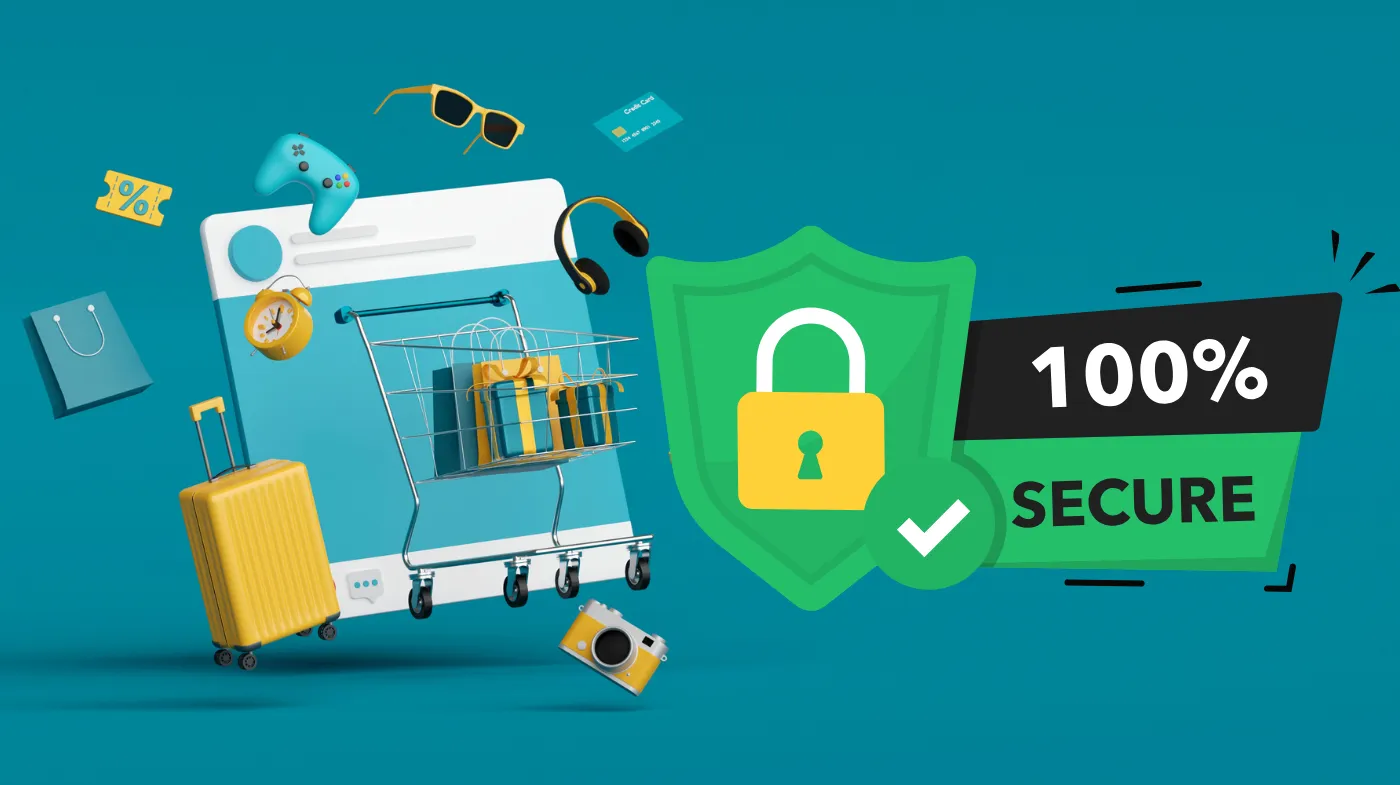
Running an e-commerce store comes with countless responsibilities. You’re entrusted with sensitive customer data and financial information, and ensuring the security of your store is paramount.
Cybercriminals frequently target e-commerce stores to steal valuable information, and without the right precautions, your store could become an easy target.
There are some essential security practices you can implement to protect your business and customers.
One such practice is enforcing strong password policies. By requiring customers and employees to create complex, unique passwords, you significantly reduce the risk of unauthorized access.
A strong password typically combines uppercase and lowercase letters, numbers, and special characters, making it harder for attackers to crack.
We will discuss all the essential security practices to safeguard your store, so you can minimize risks and protect your business from cyber threats.
Best Practices for Strong Password Security in Your E-commerce Store
To secure your e-commerce store, you can implement several best practices for strong password security:
Enforce Strong Password Policies
While customers often underestimate the importance of strong passwords, enforcing robust password policies in your e-commerce store is essential for securing sensitive information.
Require that both customers and employees create passwords with a strong password character length of at least 12, incorporating a mix of uppercase letters, lowercase letters, numbers, and symbols. This complexity significantly improves resistance against brute-force attacks.
Discourage Use of Personal Information
When creating passwords, it’s essential to avoid using personal information, since such data can be easily obtained or guessed by attackers. Common mistakes include using birthdays, names, or pet names---details that are often publicly accessible.
Educate your customers about the risks of incorporating easily guessable information into their passwords. By highlighting how straightforward it is for hackers to uncover these details, you can encourage more secure practices.
Reinforcing this message not only strengthens individual accounts but also protects your e-commerce store from prevalent vulnerabilities.
Promote Unique Passwords for Every Account
Using unique passwords for every account is essential in mitigating security risks in today’s digital landscape. Reusing passwords can lead to catastrophic breaches; if one account gets compromised, attackers can easily access others.
Encourage your customers to adopt unique passwords to enhance their security. By doing this, you effectively isolate each account, making it considerably harder for malicious actors to gain widespread access.
A secure password generator can assist in creating strong, unique passwords for different platforms. This proactive stance won’t only safeguard your customers’ information but also build trust in your e-commerce store’s commitment to security.
Encourage Password Manager Use
Over 80% of data breaches stem from weak or reused passwords, highlighting the critical need for password management solutions in today’s e-commerce environment.
Encourage your customers to adopt password managers like Bitwarden, or 1Password. These tools simplify the management of multiple complex passwords, generating and securely storing them to eliminate the need for memory or written notes.
Implement Two-Factor Authentication (2FA)
Implementing two-factor authentication (2FA) greatly enhances your e-commerce store’s security by adding an essential layer of protection against unauthorized access.
By requiring a second form of verification, like a code sent to a phone or email, 2FA guarantees that even if someone obtains a user’s password, they can’t log in without that second factor. This considerably reduces the risk of unauthorized access to sensitive information.
Make 2FA a requirement for both employees and customers, particularly during sensitive transactions or account modifications.
Enable Account Lockout Mechanisms
While two-factor authentication (2FA) greatly enhances security, further measures are necessary to protect your e-commerce store from persistent threats like brute-force attacks.
Implementing account lockout mechanisms is a straightforward yet effective strategy. After a predetermined number of failed login attempts, temporarily lock the account, requiring additional verification to regain access.
This not only deters attackers from endlessly guessing passwords but also minimizes the risk of unauthorized access.
Educate Your Users About Phishing
Since phishing remains a prevalent threat to password security, educating your customers about its signs is essential.
Make them aware of suspicious emails or links that seem out of place; these are often indicators of phishing attempts. Advise your users never to share their passwords via email or click on questionable links.
Implementing an email-hack checking tool can further enhance their protection by identifying potential phishing attempts.
What Else can you do to secure your e-commerce store?

To safeguard your e-commerce store effectively, it’s essential to adopt a holistic approach to security beyond just strong passwords.
Implement SSL certificates to encrypt data during transactions, ensuring customer information remains confidential. Regular security audits are vital; consistently review your site for vulnerabilities, monitor for suspicious activity, and apply system updates promptly.
Additionally, prioritize employee training---equip your team with knowledge of security best practices, such as recognizing phishing attempts and managing passwords securely.
When do you need to perform security audits for your e-commerce store?
Security audits for your e-commerce store should be performed regularly, ideally at least once a year. However, you should conduct them more frequently if you handle sensitive customer data, operate in highly regulated industries, or notice any suspicious activity.
Additionally, audits should be carried out whenever there are updates to your website platform, security software or after any potential data breach. These audits help identify vulnerabilities, ensuring that your store remains secure and compliant with industry standards.
Why should you care about backup systems for store security?
While many e-commerce store owners focus heavily on security measures like firewalls and anti-malware software, the importance of robust backup systems is often underestimated.
If your store faces a security breach, having a reliable backup guarantees you can restore your website and data swiftly, minimizing downtime. This process is critical for recovering customer information, transaction history, and other essential data that may be lost during an attack.
Regular backups not only safeguard your assets but also provide peace of mind, reinforcing your overall security strategy. Don’t overlook backups; they’re an indispensable line of defense in today’s digital landscape.
Implement Strong Security Practices and Protect Your E-Commerce Store and Customers
In conclusion, securing your e-commerce store with strong password practices and additional security measures is crucial in protecting both your business and your customers.
By enforcing strong password policies, using tools like two-factor authentication, and educating your customers about phishing, you can reduce the risk of cyber threats.
Don’t forget to implement regular security audits, backup systems, and employee training to maintain a high level of security.
Taking these steps will ensure your store remains safe and trusted. Remember, in the world of e-commerce, security is an ongoing commitment to your business’s success.
